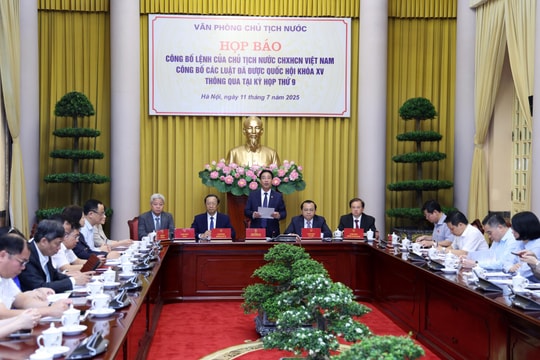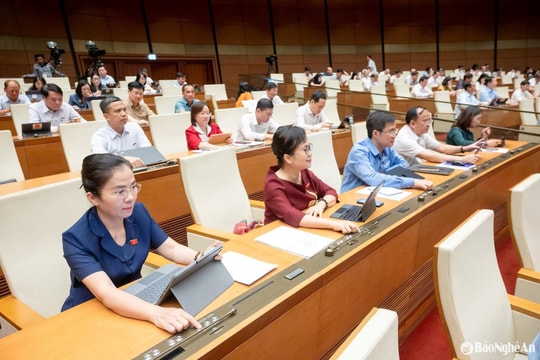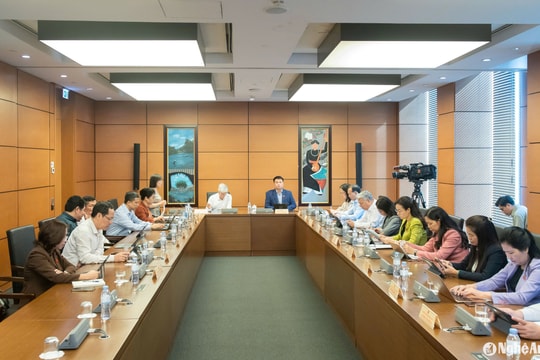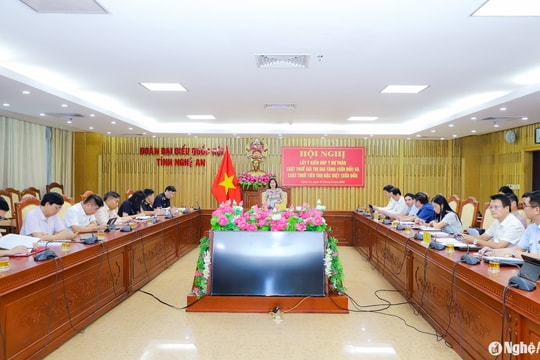3 policies that greatly impact the auto market in 2016
The change in special consumption tax rates under the new Law is considered the policy change with the strongest impact on the automobile market in 2016.
Changing the way of calculating Special Consumption Tax, applying tax based on vehicle capacity and closing or opening vehicle imports are policies that strongly impact changes in the automobile market in 2016.
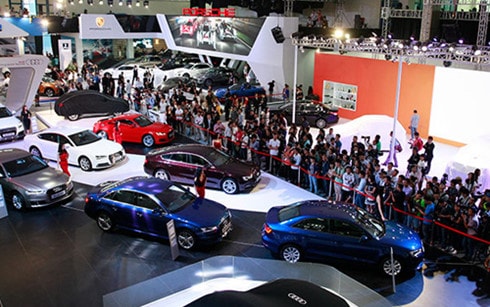 |
| The 2016 car market has many changes due to new policies. (Illustration photo) |
Special Consumption Tax is calculated in a new way
In early 2016, the automobile market, or more specifically, imported automobiles, almost suffered a shock when the retail prices of imported cars increased simultaneously due to Decree 108/2015/ND-CP guiding the Law on Special Consumption Tax (SCT) amended to stipulate new tax calculation prices to guide the Law on Supplementing and Amending the Law on Special Consumption Tax (SCT) officially taking effect from January 1, 2016.
If previously, the special consumption tax on imported cars was calculated based on the import price (CIF) and import tax (excluding transportation, marketing, and sales costs), now, according to the new Law (often called the new special consumption tax calculation method), the cost price of imported cars includes: Price for calculating import tax + import tax (if any) + special consumption tax at the import stage. In case the selling price of the facility importing cars with less than 24 seats is lower than 105% of the cost price of the imported car, the price for calculating special consumption tax is the price determined by the tax authority according to the provisions of the law on tax administration.
As for domestically assembled vehicles, the price used as the basis for calculating special consumption tax is the selling price of the manufacturing facility but must not be lower than 7% of the average selling price of commercial establishments. The average selling price of commercial establishments for comparison is the selling price of the car excluding the options of equipment and spare parts that the commercial establishment installs at the request of the customer.
In case the selling price of a facility manufacturing and assembling cars with less than 24 seats is 7% lower than the average selling price of a commercial business establishment, the price for calculating special consumption tax is the price determined by the tax authority according to the provisions of the law on tax administration.
As soon as the Ministry of Finance finalized the special consumption tax calculation plan and issued the Decree, the automobile market was greatly affected by the new tax method, causing the price of imported cars to increase. From the end of December to the beginning of January, a series of imported luxury car brands officially adjusted their prices in the Vietnamese market. Most imported car models increased from several tens of millions to billions of VND. This is also the reason why the imported car market in the first two months of the year decreased sharply.
Tax levied by vehicle capacity
The change in the special consumption tax rate schedule under the new Law is considered the policy change with the strongest impact on the automobile market. In fact, the change in the tax schedule is not new information and will happen sooner or later, but it is enough to make car import enterprises simultaneously cry for help and submit to the Prime Minister a petition to postpone the implementation of this Law because the market has just experienced a price increase shock due to the change in tax calculation method that took place at the beginning of the year.
And it was not until mid-April that the National Assembly decided on the timing and main contents of the Law amending and supplementing a number of articles of the Law on Value Added Tax, the Law on Special Consumption Tax and the Law on Tax Administration. Accordingly, this Law officially took effect on July 1.
According to the new regulations, special consumption tax will be divided according to the engine capacity of the vehicle. Specifically, imported cars with engine capacity under 1.5L will have a change with a tax rate reduced by 5% (from 45% to 40%) and continue to decrease to 35% from January 1, 2018. Car models with engine capacity from 1.5L-2L will temporarily keep the tax rate of 45% until December 31, 2017, then reduce to 40% from January 1, 2018.
Meanwhile, the excise tax on large-capacity engines will increase sharply. Specifically, vehicles with cylinder capacity from 2.5L - 3L will increase from 50% to 55%; vehicles with capacity from 3L - 4L; from 4L - 5L; from 5L - under 6L will have corresponding taxes of 90%, 110% and 130%. In particular, vehicles with capacity from 6L or more will be taxed up to 150%.
With this tax schedule, the market will move in two opposite directions of increase/decrease when car models using small-capacity engines such as Honda City; Ford Fiesta; Ford Focus; Hyundai i10; Kia Morning; Mazda 2; Chevrolet Spark; Mitsubishi Mirage will decrease slightly. Meanwhile, imported car models from brands such as Audi, BMW, Lexus, Mercedes-Benz, Land Rover, Porsche, etc. will all increase by at least several hundred million to several billion VND. This policy also makes the car market move in two distinct directions when the consumption of small-sized cars decreases and the import of large-capacity cars, especially expensive supercars, takes place very bustlingly.
Circular 20 "tightening" on non-genuine imports expires
On July 1, Circular 20/2011/TT-BCT issued by the Ministry of Industry and Trade five years ago requiring automobile importers to have a power of attorney as an authorized importer, distributor, and a certificate of warranty and maintenance facility issued by the Ministry of Transport officially expired.
The fact that Circular 20 has expired without any replacement document has caused car import businesses to be divided into two fronts. One side is the Vietnam Automobile Manufacturers Association (VAMA) and official importers, and the other side is the VCCI and unofficial car import businesses.
VAMA and genuine car importers have simultaneously sent a petition to the Prime Minister to extend Circular 20 or soon have a replacement document, saying that opening up private car imports will make the car market no longer as stable as it is now and go against the direction that the new Government has built for the automobile industry. Before that, VCCI and non-genuine car importers proposed to remove Circular 20 because they believed that this circular has created additional sub-licenses and created unfair competition, in which the advantage is tilted towards importers with genuine authorization papers. VCCI even said that Circular 20 is against the law.
Up to now, the fate of Circular 20 has not been decided. According to many sources, the Ministry of Industry and Trade has submitted to the Prime Minister a replacement document and the decision on whether to continue to close or open the door to car imports will be decided this month./.
According to VOV
| RELATED NEWS |
|---|



